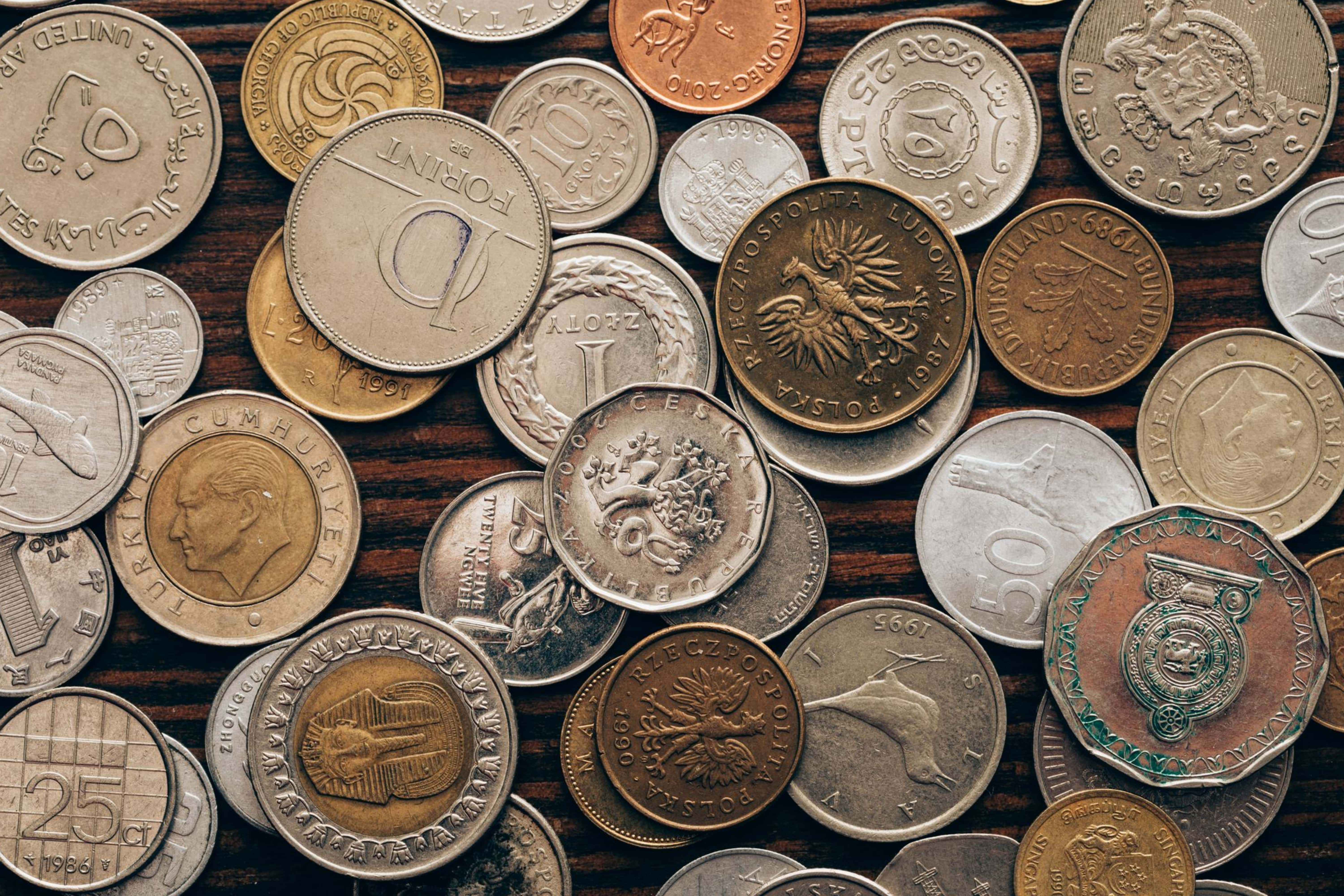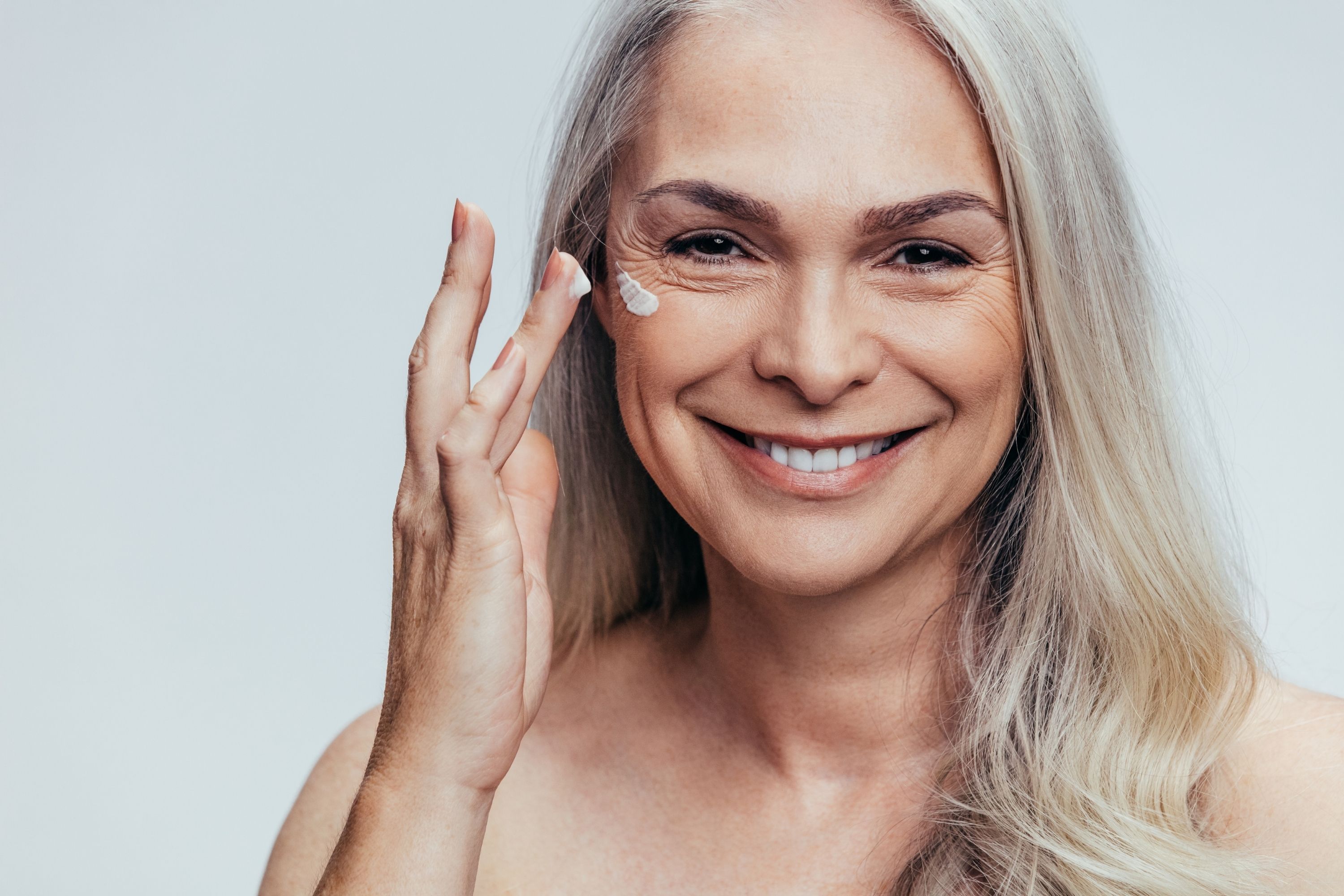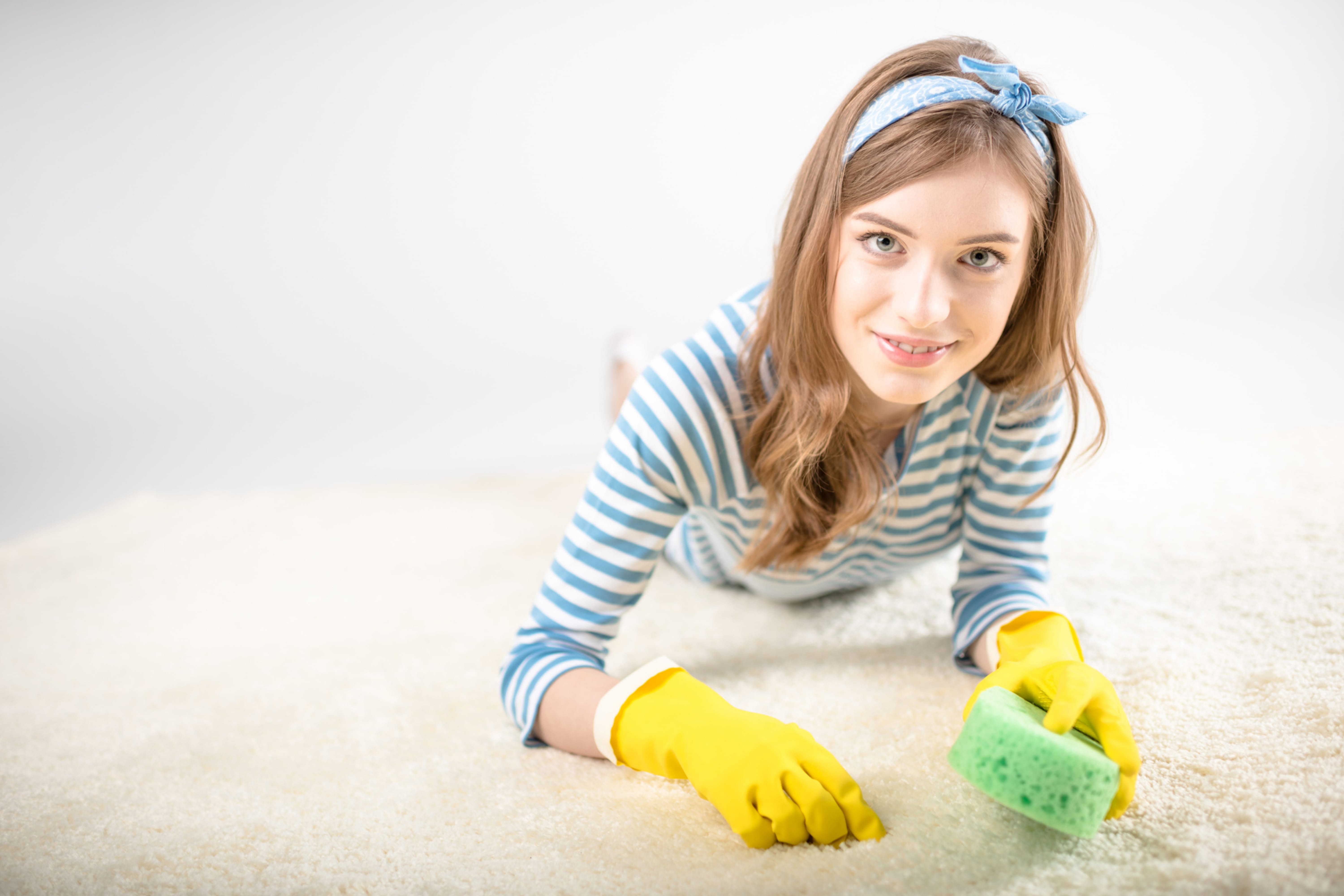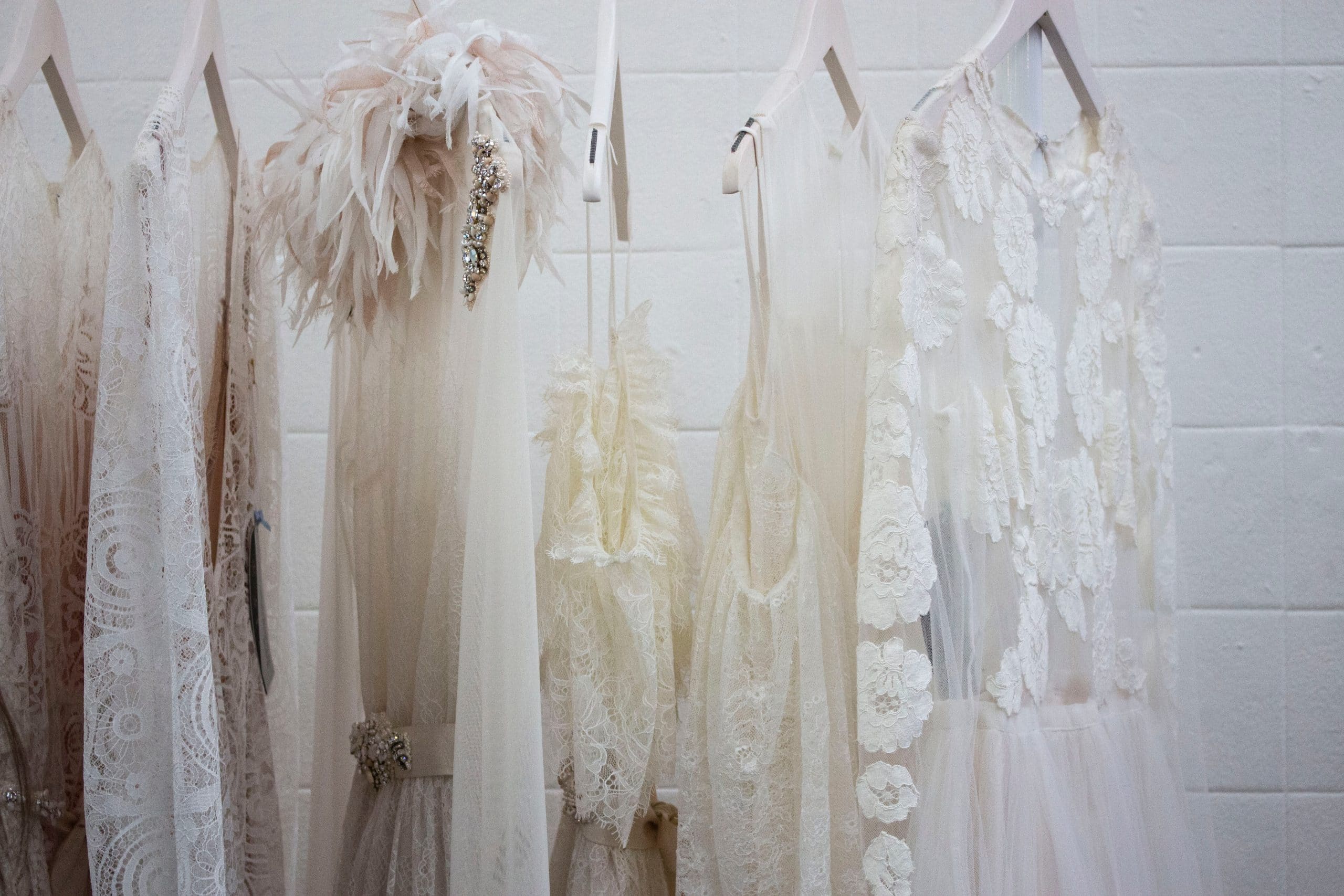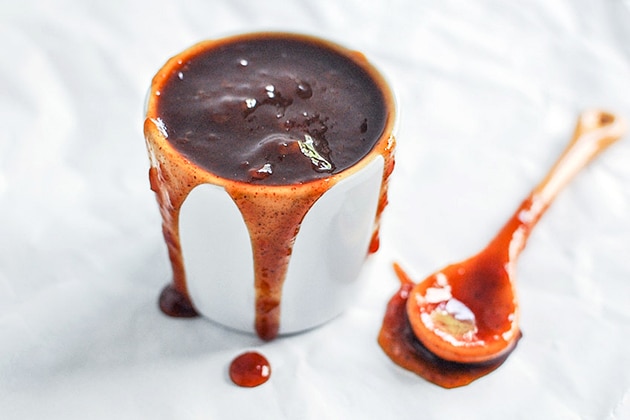Those who collect coins, no matter whether they are amateurs or professional numismatics, often face the necessity to have their metal money look proper to join the collection.
We will teach you how to clean old coins without devaluing them.
Should You Clean Old Coins At All?
Everyone who is curious about numismatics or is a professional collector himself asks this question.
Sometimes it happens that we find an old dusk coin somewhere in the attic or in a box with the useless stuff kept in the mezzanine for years.
And now what?! It is so dark, patined with dust and grime, that it is nearly impossible to identify it!
We bet most of you would say that one has to clean coins, nevertheless, everything is not so easy.
Cleaning coins, especially those that might be valuable for collecting, is a tricky thing. Aged metal money tends to form a patina, that dusk layer of tarnish that shows the item’s age and proves its value.
Professional collectors appreciate that touch of antiquity, that is why they normally leave the metal money as it is, dull and uncleaned. If patina is washed away, it can even reduce the coin’s price!
Nobody would like to cause damage to some precious and rare two hundred years old penny, right? Especially if it will cut its price twice as lower. At that point, remember that not all the aged metal money must be cleaned!
Now, let’s see what can be done to the metal money that is allowed to be cleaned
How to Clean Old Coins. Instruction In Details
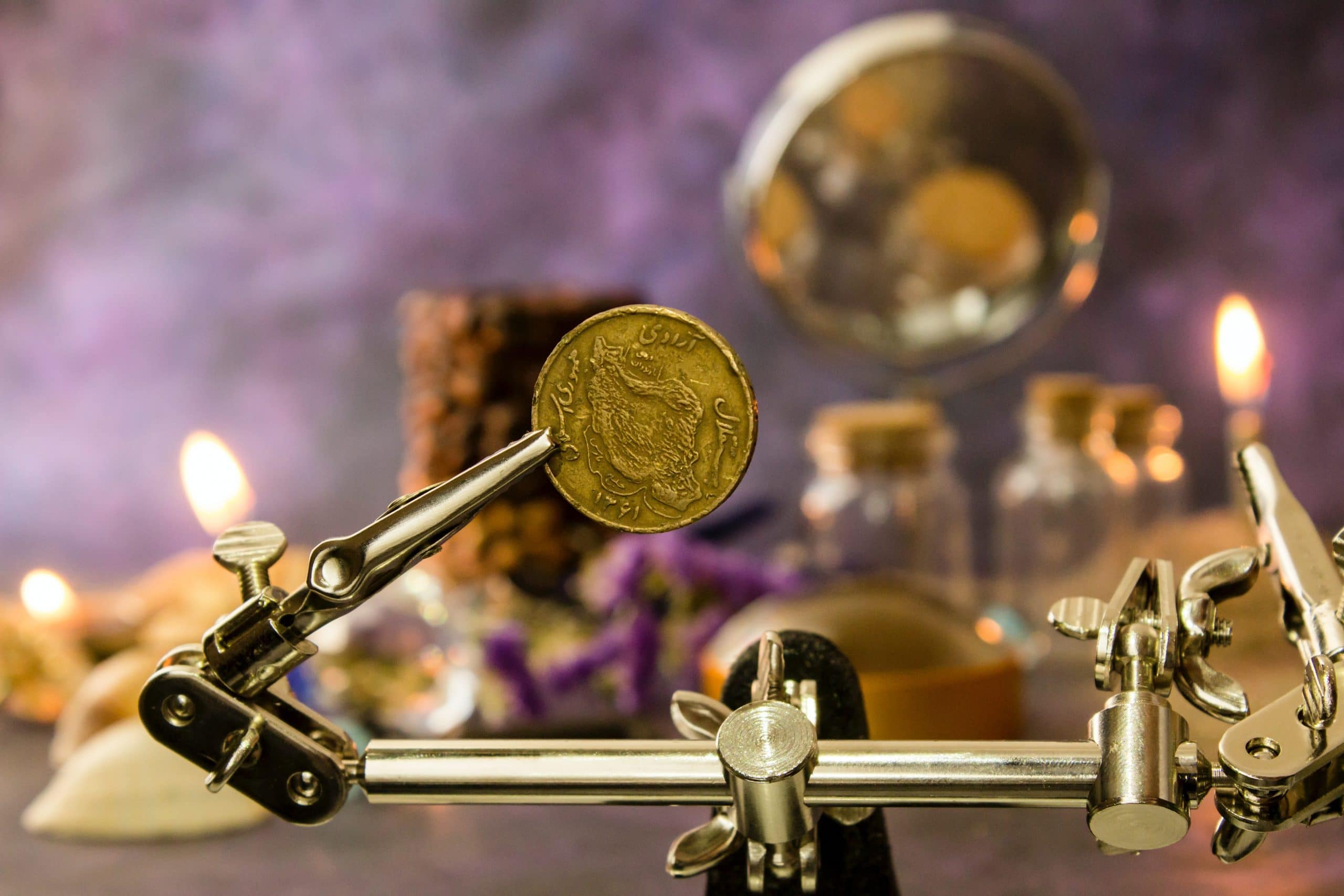
If you are absolutely confident that the metal money you possess is not some rare exemplars and you strive to have it washed, go for this coin cleaning method suggested below.
- Wash your hands
- Bathe the metal rounds in warm soapy water
- Rinse the pieces of money under the open faucet
- Remove them into the tank with distilled water
- And dry them on a towel
Never use acids or metal polishes since they will damage the coin’s surface and cause corrosion!
How to Clean Coins For Collecting?
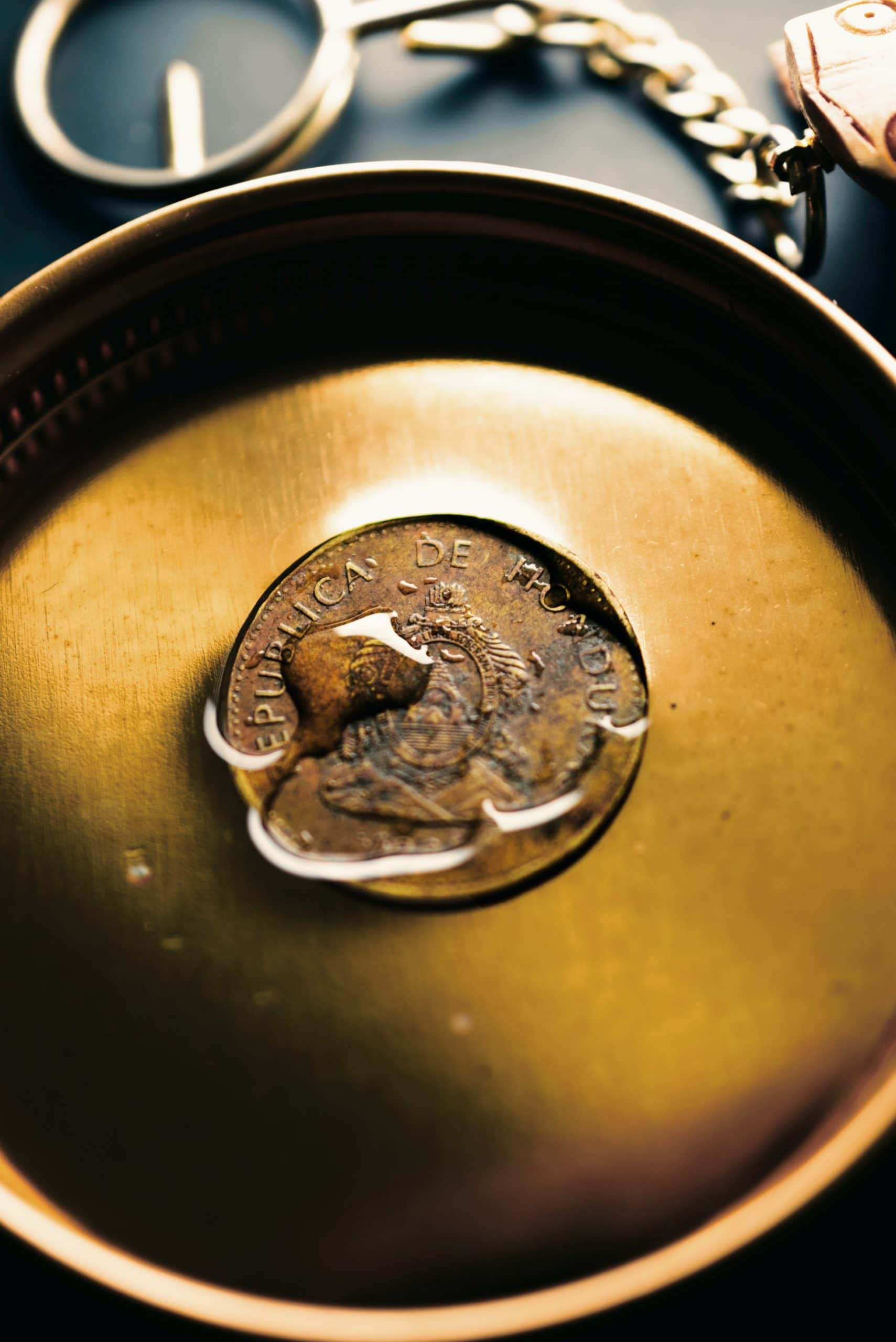
The way we use to clean old coins to keep them valuable for collections is slightly different from what was described above.
- Smear the pieces of money with vaseline working with a cotton swab.
- Carefully dab the shiners with a lint-free fabric to free from the vaseline layer. Like this, all the dirt will be deleted safely.
- Immerse the metal money into the 100% acetone for five seconds and rinse with distilled water instantly. It is crucial to do it immediately since acetone will give the shiners brownish shade which will decrease their price.
- Don’t wipe the metal money!
For better maintenance, keep the valuable metal money in plastic holders that are air-tight to protect the coinage from any external impact.
How to Polish Coins?
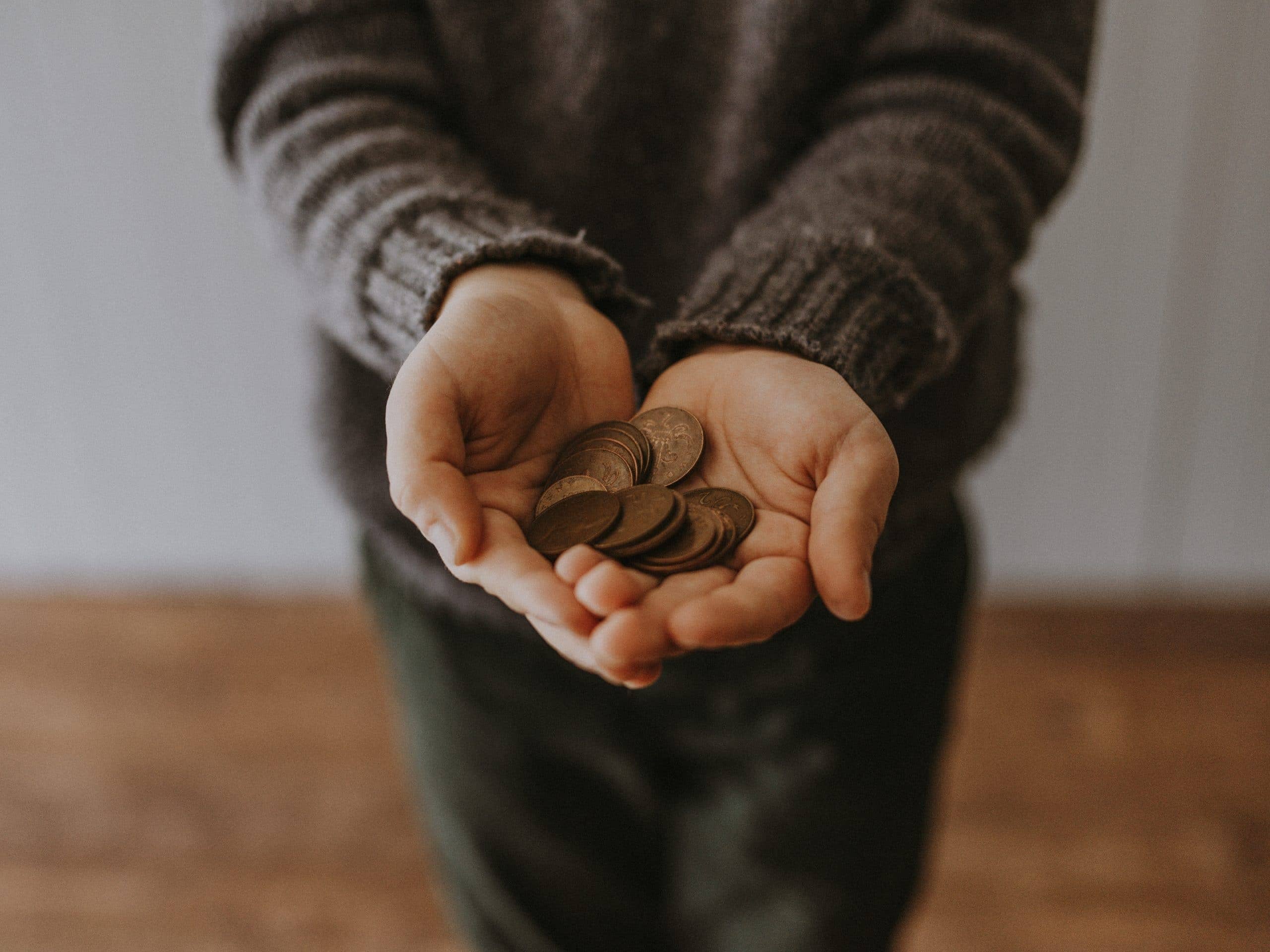
To make coinage even shinier, there is a safe way that won’t damage the precious metal rounds!
Remember though that rubbing or any other similar sort of polishing is unsuitable, especially for valuable items, since it will damage the surface of the shiner and it will lose the value.
For safer treatment:
- Take a tank deep enough to put a coin inside
- Pour white vinegar (no more than 5% or acidic acid) over to cover the coin
- Add one big spoon of pure baking soda and wait for 10 min. If necessary, repeat the procedure until the coin is shiny again
- For extremely dirty items, try to gently rub them with the fingers covered with baking soda
- Then rinse the shiner under a cold tap
And remember: don’t do this unless you’re absolutely sure that the coins are OK to clean and they won’t lose the value.
Cleaning Different Types Of Oil Coins
Another issue that coin collectors face is cleaning different kinds of coins. Silver and copper, more and less valuable – how do you treat them all?
Let’s see!
How to clean copper coins?
Mix together one spoon of salt and some white vinegar. Treat the shiners with this blend, rinse under warm running tap, and air-dry.
How to clean pennies?
For them, salt and vinegar blend will work pretty well, also, ketchup can become a great cleaner since it’s acidic. Submerging your metal money in cola is another option.
How to clean silver coins?
Submerge the shiner in vinegar for 60 sec, then keep it in the lemon juice for 5 min, rinse, then repeat it with the distilled water, and air-dry.
How to clean dimes?
Pick up any of the approaches suggested above (e.g. cola, salt with vinegar, soda with vinegar, etc.).
Clean Coins At Home. Solutions And Methods
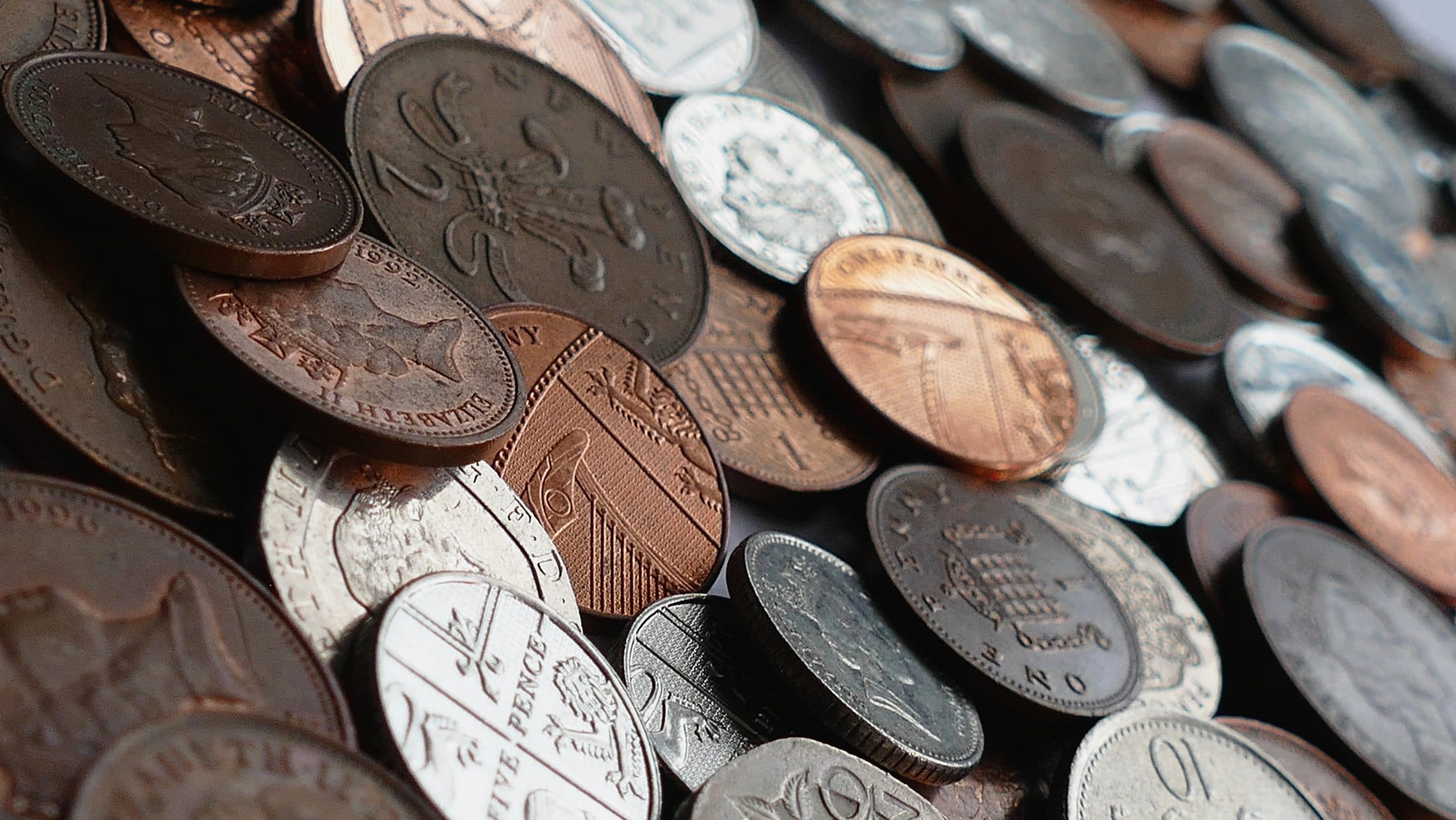
As you could see, there is plenty of different approaches and methods of taking care of the shiners. To structurize them, let’s summarize how to clean coins with household items.
- Prepare a coin cleaner by mixing baking soda and white vinegar
- Try to revive the metal money by applying salt and vinegar blend
- Reanimate the metal money with ketchup or cola
- Pure white vinegar will also help greatly if it’s applied for a very short period of time
All You Ever Wanted to Know About Cleaning Collectible Coins
If you are collecting coins, you know how strict the rules are about cleaning them, especially if they are some rare ones. However, to keep them in a proper state, you still might need to clean them somehow and do it exceptionally carefully!
With years, coins tend to accumulate grease, dirt, corrosion, and of course, germs and other gunk on their surface. It doesn’t only make them look way less lustrous but also it makes them potentially harmful for your health since no one knows what bacteria can be found on them!
Of course, for cleaning old collectible coins, no harsh cleaners are acceptable, so we are going to share three handiest methods of cleaning collectible coins with you.
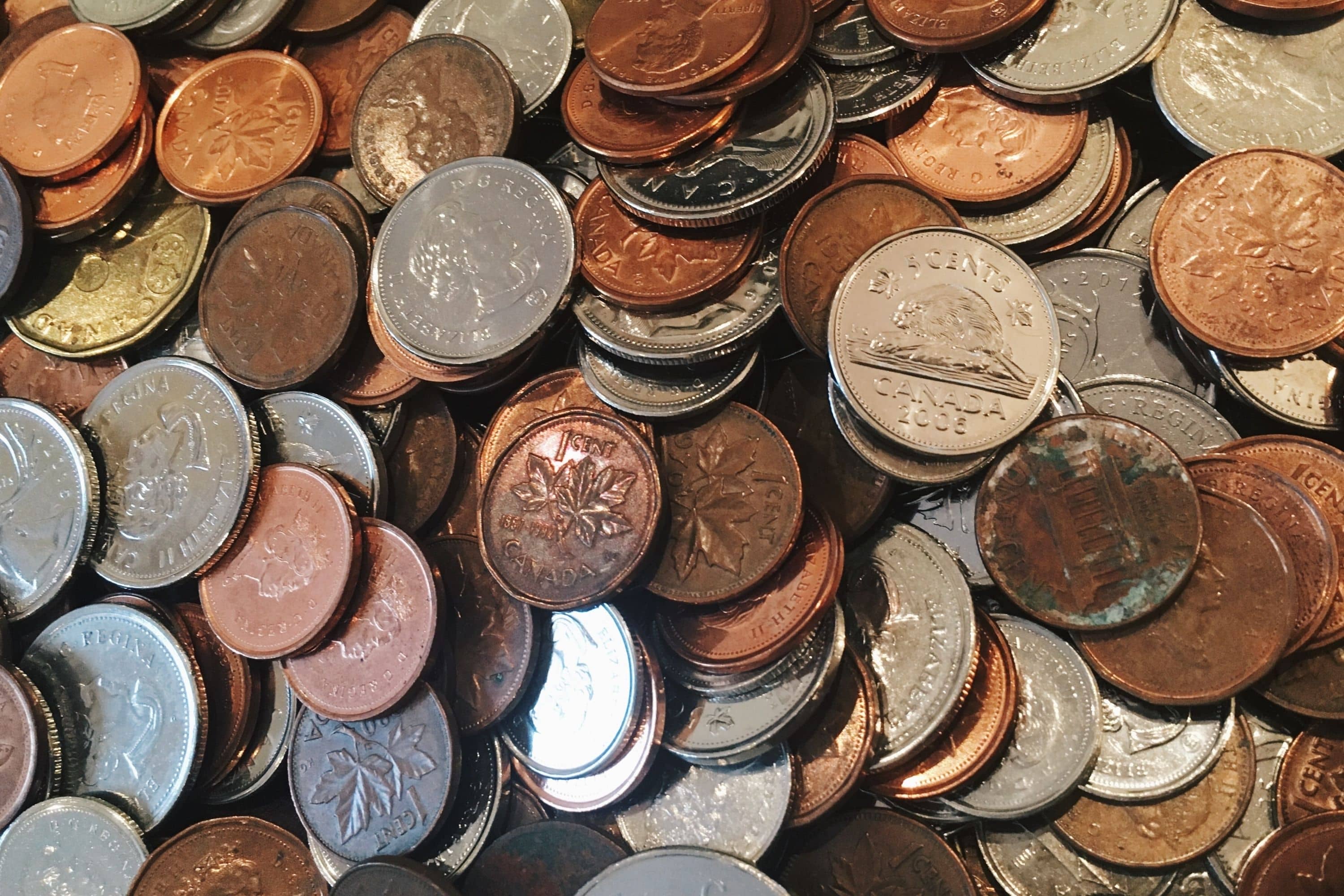
Wash Your Coins
Simply hold them under the warm running tap water. Using this method, you will allow your faucet to remove the initial dirt buildup.
However, take into consideration that the faucet should have enough water pressure to get the job done, so avoid any add-on to increase the pressure, like a jet! You only need to hold a coin under the faucet for about one minute on each side.
Once you are done, place them aside on a paper towel or rag to dry.
Basically, all coins can be cleaned like this. You might, however, find it more difficult to clean copper coins with only water since copper tends to exhibit more damage in comparison to nickel or silver.
Also, when “watering” your coins, make sure that you plug the drain! It will help to stop a coin in case it slips out of your hands while being washed. Finally, we would recommend you clean each coin separately for getting better results.
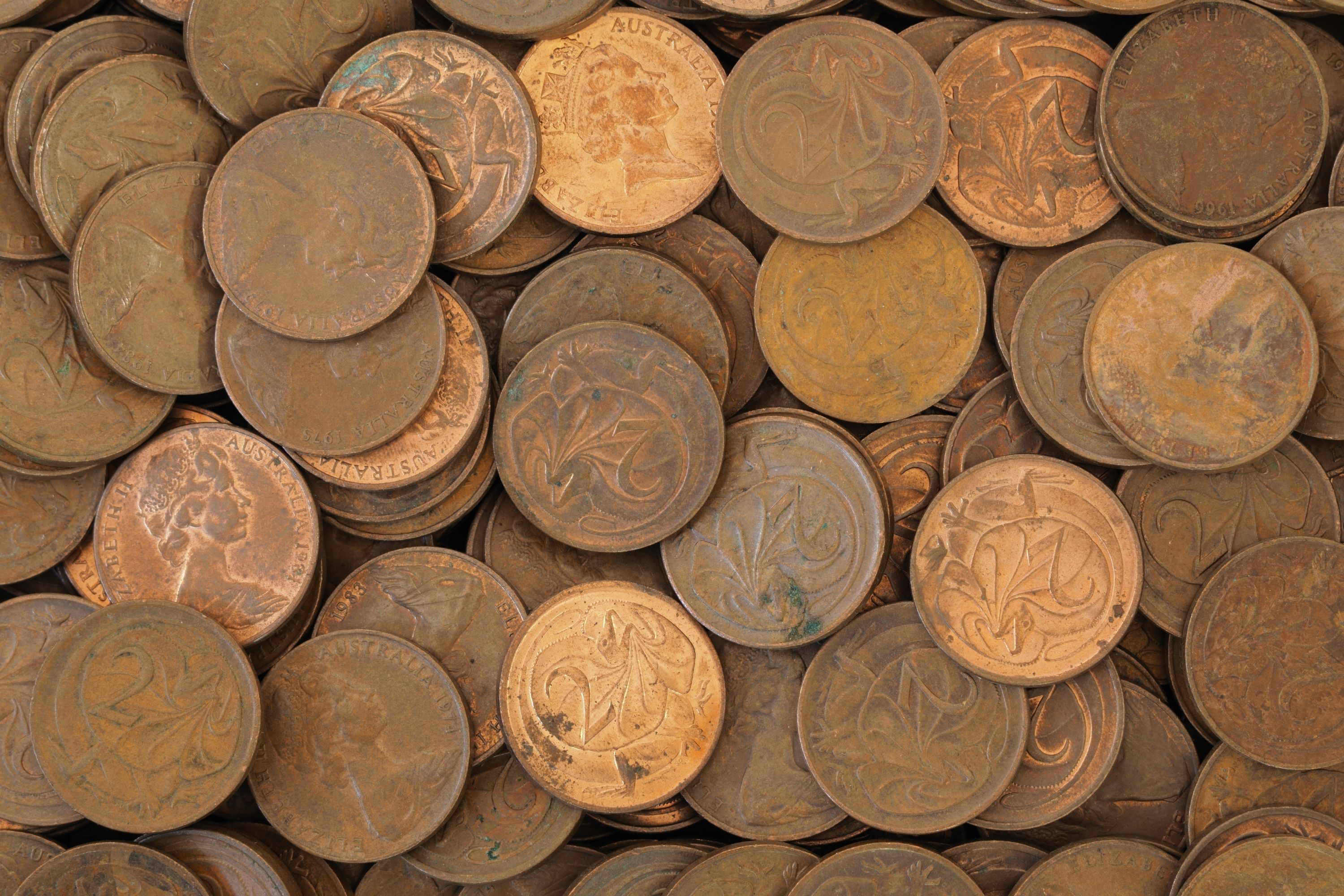
Make a Solution Of Dish Soap And Water
For this method, you will need a small plastic bowl, a bottle of liquid dish soap, and faucet water. Fill the bowl with water and add enough dish soap to create a foamy substance. Then dip each coin into this soapy bath separately and, holding it between your thumb and index finger, rub the coin gently to remove dirt from its surface.
In case you have to deal with the exceptionally dirty coins, feel free to let them sit in the soapy water for a while to soften the dirty buildup. Also, make sure that the soap you are using doesn’t contain any acids, otherwise, it will corrode the coins!
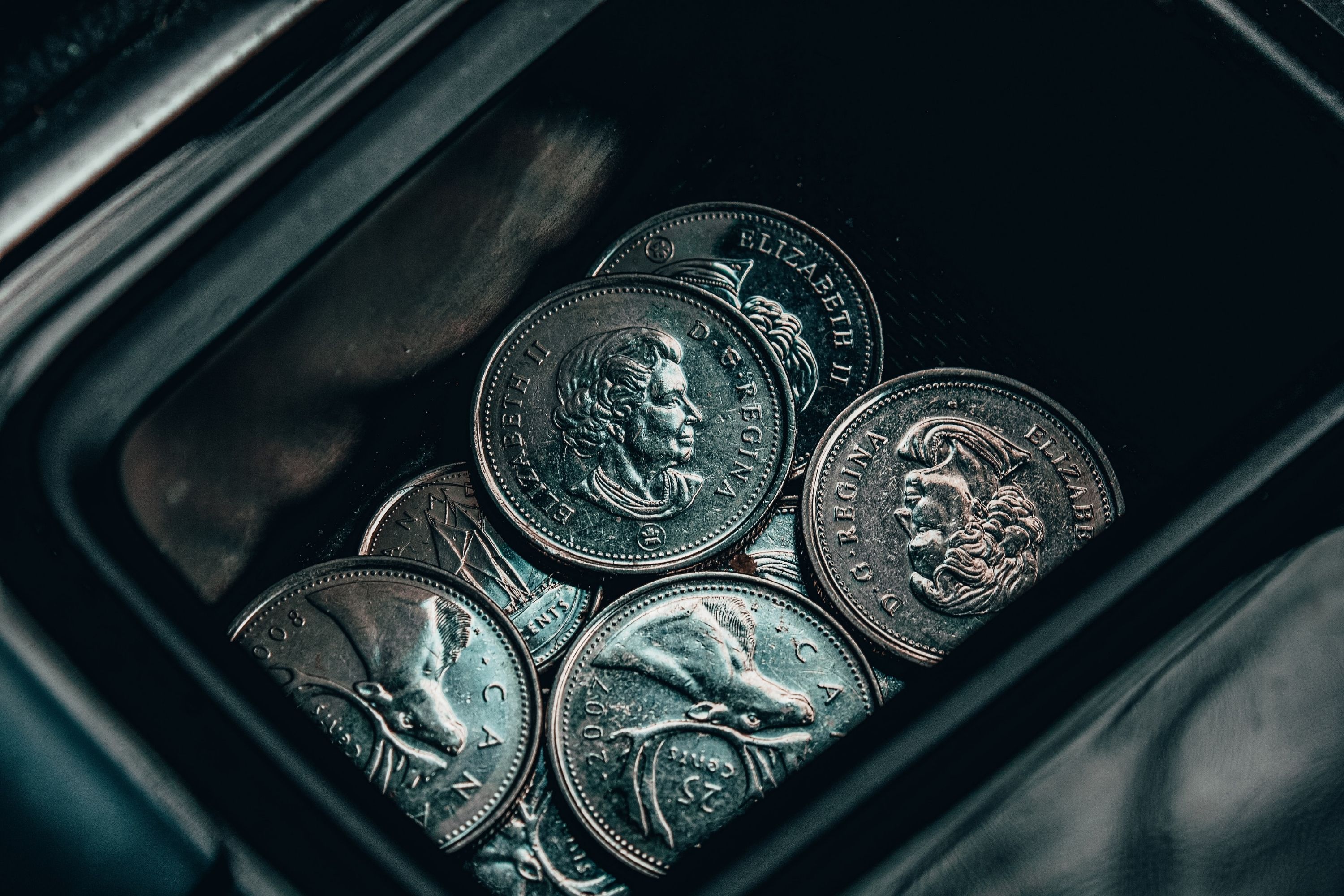
Brush Your Coins
To make your cleaning session even more effective, take a soft-bristled toothbrush and a paper towel, and brush your coins while they are still in that soapy solution. Keep brushing each coin separately until all of them are shiny again.
We would not recommend you apply this method on rare and antique coins since bristles can leave tiny scratches on their surface and thus make the coins less valuable. But for the rest, just make sure you don’t rub them too vigorously and you rinse them thoroughly when you’re done cleaning.
For drying, use a soft cotton towel and ensure that each coin is absolutely dry before you put it away for storage.
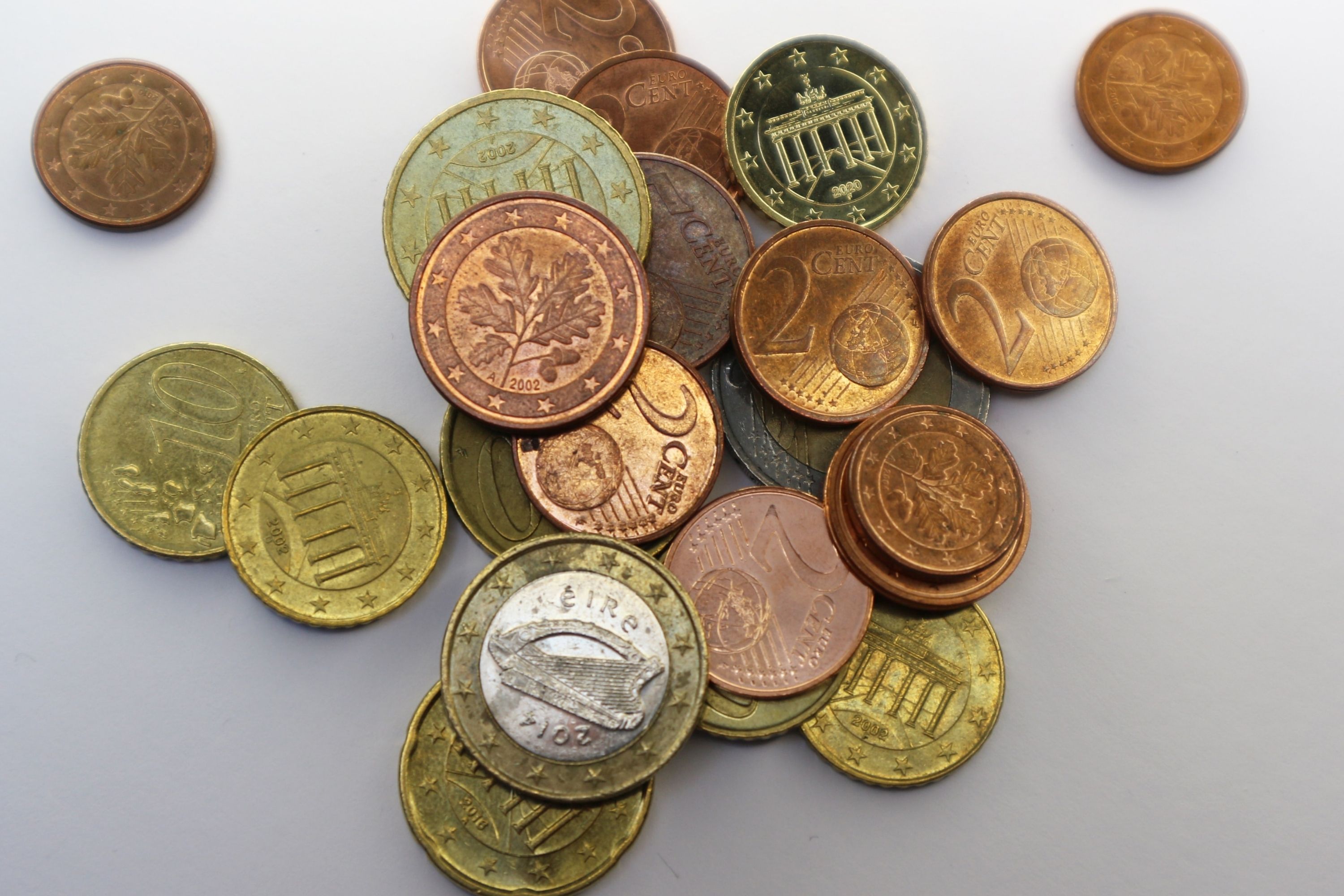
Soaking Your Coins
This is another cleaning method that you can use. For this one, you will need to make a bath by mixing isopropyl alcohol and salt in a plastic bowl. These chemicals are abrasive and acidic and will clean your coin of any built up dirt.
To make your coin bath combine a cup of over-the-counter isopropyl alcohol and two tablespoons of table salt in a bowl. Mix the solution and place your coins in it. Let your coins soak for anywhere from two hours to a week, depending on how dirty your coins are.
Since isopropyl alcohol is a flammable liquid, make sure you open the windows in a room where you are cleaning your coins, and also ensure that there are no heating objects or the sources of open fire close to you!
Once you are done with soaking your coins, rinse them with distilled water since it has no chemicals that can harm the coin surface.
Then, dry them with a soft towel by simply dabbing the coins, and allow them to air dry. Finally, place your coins for storage into acid-free plastic folders at room temperature.
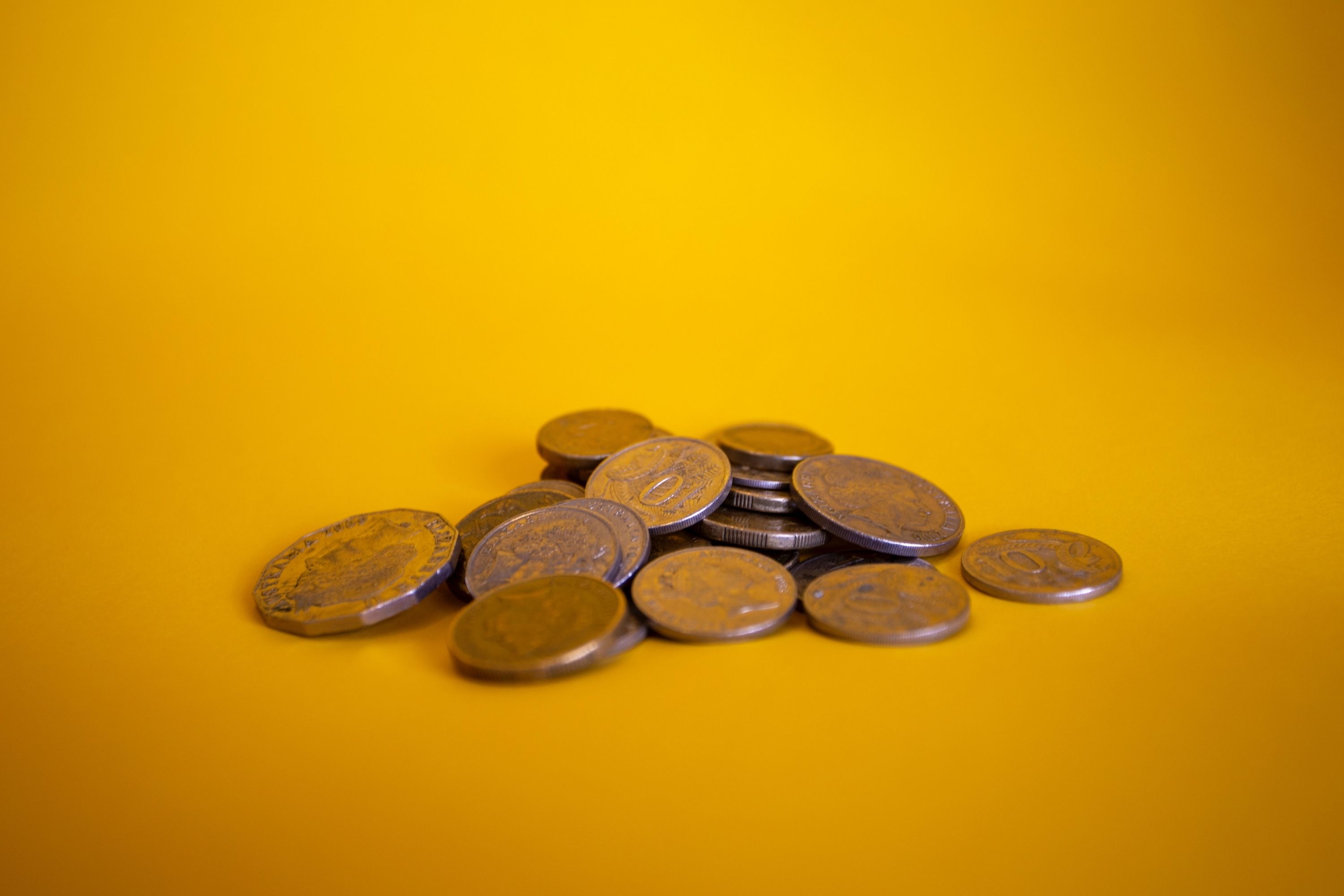
How to Clean Collectible Coins
The best option is to bring them to a professional cleaner, of course. But if this is not an option for you for any reason, you can try to do it yourself. The first method is to apply a thin layer of vaseline with a cotton swab.
Use a dedicated lint-free cloth and lightly dab the coin until the Vaseline is removed. This is a way to pick up any unwanted dirt or dust, without damaging the value of the coin. When doing this, be careful, and use a magnifying glass.
Another method is to put your coins into an acetone bath for five seconds. Leaving any acetone on your coins can add a brownish haze to them and reduce their cost significantly.
This is why it is crucially important that you immediately rinse your coins with distilled water and get all of the acetone off the coin before allowing it to air dry!
Do not wipe or rub your antique coins. Because acetone is a solvent and not an acid, it will not affect the value of your coins unless they are exposed to it for a prolonged period.
Finally, when you’re done and your coins are all absolutely dry, store them in 2×2 hard plastic holders.
Frequently Asked Questions
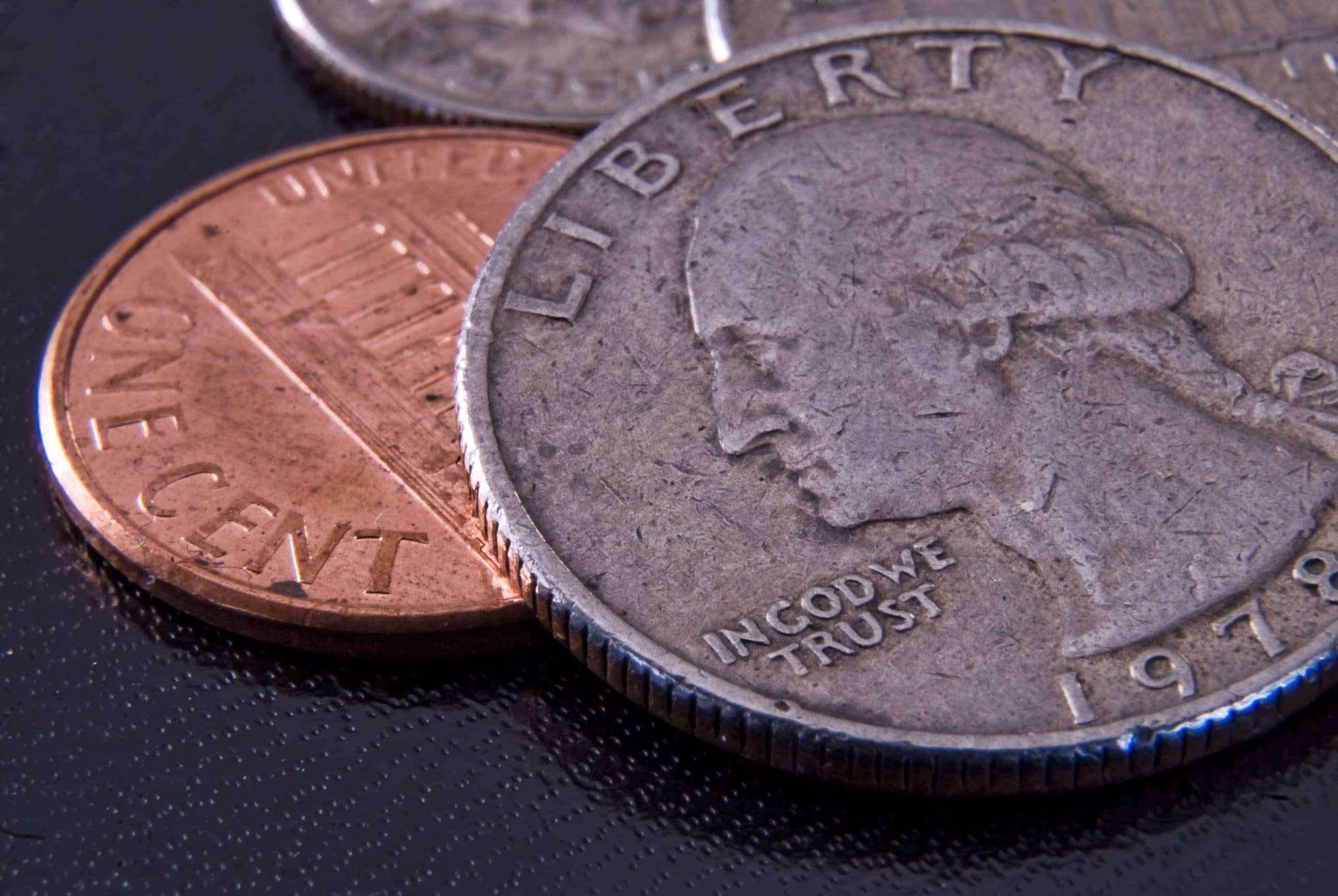
Cleaning coins for a home collection and preparing them for selling are different things that require different attitudes.
Check out what people ask mostly to ensure that you’re knowledgeable about any nuances.
How to clean coins safely?
Everything hangs upon the metal the shiner is made of. For really old and precious items any cleaning is prohibited since it’ll reduce their value. In other cases, use such means as baking soda, vinegar, and salt in different variations.
What can I use to clean coins?
One way is to buy a special cleaner for the metal money but if you don’t want to spend money on that, certain homemade means will work the same well (e.g. ketchup or cola!).
How to make coins shiny?
The best option is to bathe them in a baking soda and vinegar blend since any rubbing will ruin the surface.
How to clean rare coins?
We would recommend asking a professional, however, it is strongly prohibited to wash, polish or do any other actions of that kind to the rare or antique coins.

